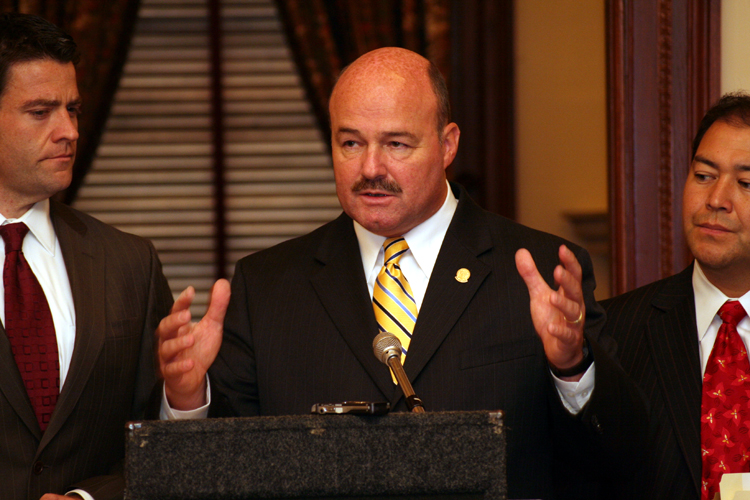
Ensures Public Works Laborers’ Wage and Grievance Fairness
TRENTON – A bill sponsored by Senator Fred H. Madden, Jr. that would amend the “New Jersey Prevailing Wage Act” to expand those who are permitted access to employer records under the Act, expand those liable for certain violations of it and increase the penalties for violations was approved today by the Senate Labor Committee.
The bill would add “representatives of workers in the construction industry” to the groups and individuals who are currently afforded access to payroll records of contractors subject to the Prevailing Wage Act. The representatives would only be permitted access if they represent workers in the construction industry in which the public work is performed.
“The men and women of New Jersey who build our state with their hard labor on public works projects deserve every safeguard we can give them to secure just wages, fair representation, multi-channel access for filing complaints and protection against retaliation,” said Senator Madden (D-Camden/Gloucester). “This bill closes the gaps in the existing law that leave our construction workers vulnerable to unfair practices and restricted recourse for grievances.”
The bill, S-1112, would additionally expand the reasons for which a worker can file a protest with the Commissioner of the Department of Labor and Workforce Development from failure to pay the prevailing wage rate to any violation of the Prevailing Wage Act. It would also authorize representatives of workers to file a protest on the worker’s behalf, as long as the representative represents workers in the construction industry in the region in which the worker is employed.
Current law only permits the employer to be held liable for violations of the Act. S-1112 would expand those considered liable to include individuals who are party to the contract in question or any other person who willfully violates the Act. Only employers could be held liable for failure to pay the prevailing wage rate.
The Prevailing Wage Act provides a list of individuals and organizations to which an employee can complain and be covered by the Act’s retaliation protections. The Madden bill would add organizations “representing workers in the construction industry” to the list. Furthermore, it would expand the Act’s retaliation provisions to cover workers who seek or share information about wages paid or worker rights under the Act.
An employer found to have violated the Act’s anti-retaliation provisions are guilty of a disorderly person’s offense and are fined between $100 and $1,000. This new legislation would further require the employer to reimburse the worker for reasonable legal fees and two times the worker’s losses that are the result of discrimination or discharge, including loss of benefits. If the worker was discharged, the employer would also be required to reinstate the worker to her or his former position or an equivalent of that position.
As an alternative or in addition to the above, the commissioner would be permitted to require reimbursement and reinstatement pursuant to New Jersey’s “Administrative Procedure Act.”
Any person, firm, association, or corporation which suffers damages as a result of a contractor or subcontractor’s willful violation of the Prevailing Wage Act would be permitted to bring an action in court. If their action is upheld they would be required to recover reasonable legal fees and two times their damages.
Finally, the bill would require the commissioner to create a list of organization’s that represent workers in the construction industry and the regions in which it represents those workers. The Department would be required to make that list available to the public and provide it to any public body that requests the already existing and regularly updated list of contractors that fail to pay the prevailing wage.
New Jersey is one of 31 states, and the District of Columbia, that has prevailing wage laws for public projects that involve state dollars. The federal Davis-Bacon Act requires that prevailing wages be paid on federally funded public workers projects, and the wage is determined by U.S. Department of Labor surveys of union and nonunion labor.
This bill would take effect immediately upon enactment. With its release from the Senate Labor Committee 4-0, it continues to the full Senate for further consideration.

